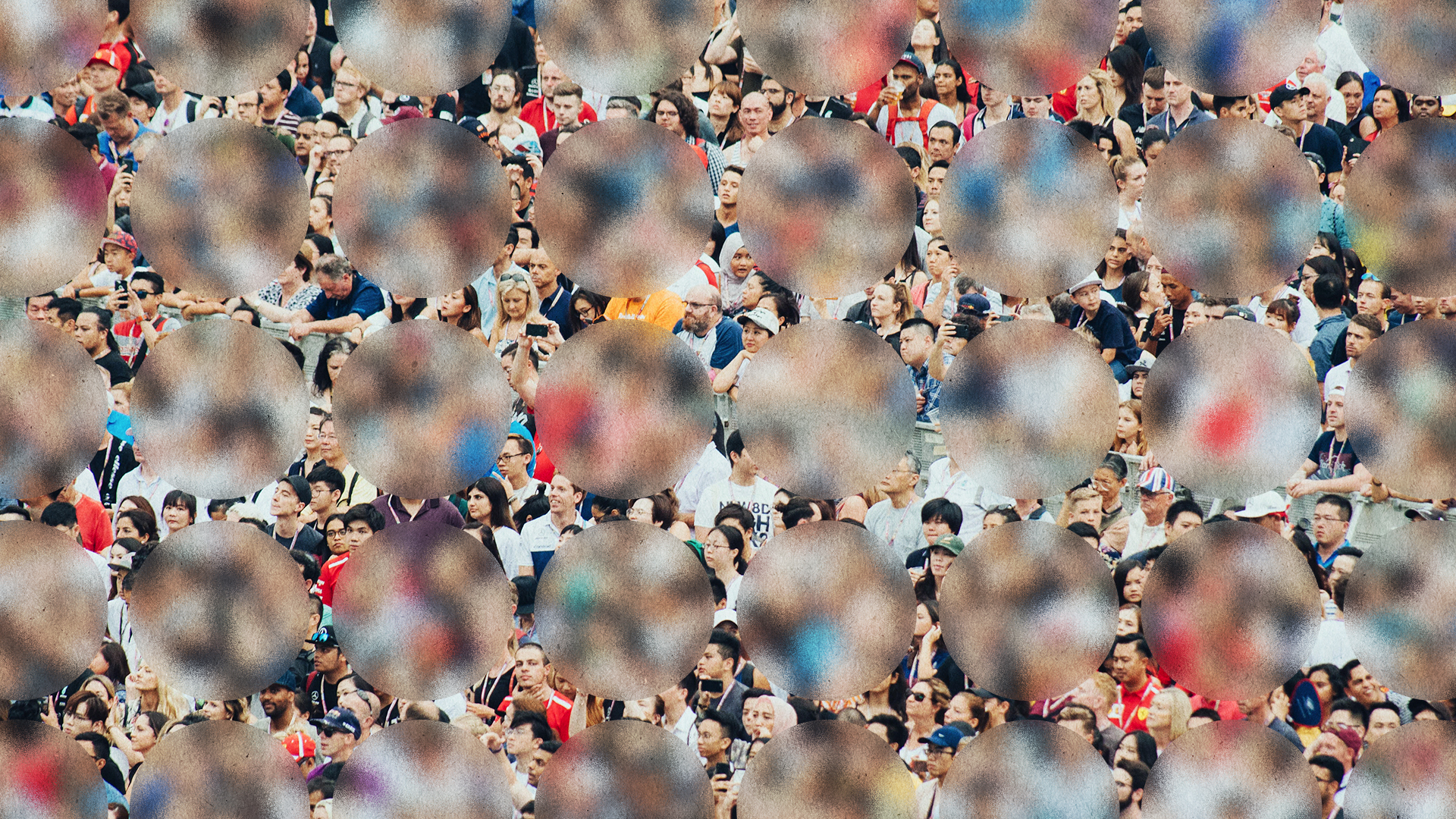On Post-Billionaire Social Media, Dignity Begins With Us

If the last few weeks have shown us anything, it’s that extreme wealth doesn’t—gasp!—necessarily equate to good management skills. From Elon Musk’s cringeworthy public destruction of Twitter, to the spectacular crash of Sam Bankman-Fried’s poorly-managed FTX cryptocurrency, and Mark Zuckerberg’s admission that he wildly screwed up the predictions for Meta, the media has been having a field day at the expense of useless billionaires (who are, as Anand Giridharadas writes, “not our saviors”—the image so carefully cultivated by their class—“but our mistake”).
Satisfying schadenfreude aside, these events have had serious real world consequences. Musk has breezily laid off half of Twitter’s staff (about 3,700 people), demanding the remainder commit to being “hardcore,” and ruthlessly purging any critics; Meta is preparing to lay off even bigger numbers of people (around 11,000) as the company reorganizes itself; and the FTX crash has affected a slew of both investors and regular people, trading companies, and other crypto currencies like Bitcoin and Ethereum. Even TikTok, whose star has generally been shining brightly, has been forced to bring down its ad targets by $2 billion.
From social to socialist media
The ensuing turbulence has raised serious questions about the future of social media as we know it, especially as rumors of Twitter’s imminent demise continue to intensify. While streaming and broadcast platforms such as YouTube, TikTok, Snapchat, and Twitch grow more popular among young people than the interpersonal dynamics of social media, sites like Facebook (long considered a boomer graveyard) and Instagram are starting to feel increasingly redundant.
And while many users might already be lamenting the potential loss of connection and community (and the opportunities for self-promotion and business networking), others are pointing to the culture’s myriad destructive qualities—from the creation of mental health issues and the spreading of fake news, to the fuelling and amplification of political and societal divisions—and wondering, along with The Chaos Machine author Max Fisher: is there still time to rewire our cultures from the damage done?
Others still are opting for an alternate middle ground: a social media experience that isn’t centralized and corporatized, but draws instead on the more democratic and egalitarian principles of Web3. The big name on everyone’s lips right now is Mastodon—a nonprofit launched by the Russian-born German software developer Eugen Rochko, it’s currently the fastest-growing social network in history, with over half a million new users signing up since Twitter went into its Musk-induced meltdown. A former Twitter employee told us: Mastodon has evoked “the socialist in me.”
There are others too, including Odysee, Mirror, Diamond, MINDS, Post, Entre, and Lens Protocol. In contrast to Twitter & Co., these platforms are usually open source, decentralized, free to use, run by volunteers (and not by one person, or firm), and interoperable. There are no ads, no promoted content, and they often—though not always—offer built-in moderation against racism, sexism, homophobia and transphobia. Jack Dorsey himself is about to launch his own decentralized (nonprofit) platform called Bluesky, and even recommended Musk consider this direction as a way forward for Twitter.
Both the structure and overall experience of these new environments feel quite different. Mastodon, for example, functions on what is known as a federated network, or “Fediverse,” basically a collection of about 3,000 individual servers, known as “instances.” These are run by separate organizations or individuals, each has their own set of rules, and are often funded via crowdsourced donations. Upon signing up, users join a specific server based on locations and topics, and can always move to a different one, or even set one up themselves.
On Mastodon, Tweets are called “toots,” a retweet is a “boost,” and quote tweeting is banned since it’s ostensibly used for bullying, harassment, and wideband communication. This, as the tech writer Clive Thompson argues, creates an atmosphere of “antivirality.” Most servers allow posts to be up to 500 characters (twice as long as Twitter), we get to keep our own data—and there are no billionaires in sight (yet).

Backwards is the new forwards
If this all seems a bit familiar to longer-term internet users, it’s because in many ways, Web3 harks back to the original internet (ARPANET) and its promise of an open, democratic, connective virtual space. Several tech commentators have already been considering the appeal of “going back to our roots,” a time when users built micro-communities centered around their hobbies, interests, and connections. It’s this “beautiful fragmentation” of social networks in the past that Web3 holds key to the social media of the future.
In his book Internet for the People: The Fight for our Digital Future, Ben Tarnoff argues for deprivatization and smaller, cooperatively owned platforms where users would be able to vote on laws and veto certain processes. The core functionality and the core data should be governed by entities that we have influence over—he claims—by community-centered co-ops.
Similarly, computer scientist and author Jaron Lanier suggests a scenario where users form groups through free association, and then post only through those groups; a little like “starting up a zine, a band, or a partnership”. Lanier calls such groups “mediators of individual data” or “data trusts,” and points out that “a broader movement incorporating this idea, called data dignity, has emerged in spots around the world, and in nascent legal frameworks.”
Data dignity aims at addressing the problem of Big Tech companies wielding power over the way peoples’ data is used and making enormous profits from it. The movement claims that “people should be able to exert democratic collective bargaining power over their data, in order to make joint decisions controlling its use, and negotiate appropriate compensation”. There are even Data Unions that allow people to control their data, choose if they want to contribute it, and enable them to get remunerated for the value of their contribution.
Another emerging platform, Project Liberty, with House member Martina Larkin just taking the helm as CEO, aims to create a new civic architecture for the digital world by using an open-source protocol called DSNP—Decentralized Social Networking Protocol. Similar to ActivityPub, which Mastodon and other platforms use, DSNP transforms the so-called social graph, the digital representation of our online relationships that governs how we connect, contribute, and consume, from a corporate asset to a community-governed public infrastructure.

Dignity doesn’t only apply to data
If we are to rediscover the internet experiences of the late 90s and early 2000s, it may be that we also have to unravel some of our more knee-jerk and destructive internet habits, and re-learn how to communicate more respectfully, harmoniously, and constructively. Because as much as these alternative federated worlds are conveniently available to us, whether they are better experiences or not, will ultimately depend on our own social media literacy and etiquette. In other words, our own humanity and civility will be at least partly responsible for building these newly democratic corners of the internet, along with the creators.
Some initiatives, like this joint EU and Erasmus project, encourage teachers to use social media in the classroom and teach social media literacy and responsible usage to their students. In a joint effort, tech correspondents, ethicists, and biologists reflect on social media as a collective superintelligence, the power of which is stifled by the algorithms and ads designed to “subtly enhance conflict.” If our emergent collective cognition stands a chance, they strongly argue against “a dumb machine optimized to extract profit from our attention.” All the more arguments for taking action into our hands.
This kind of effort might seem quite big compared to what we’re used to; but isn’t it also highly worthwhile when considering the current misfortunes and divisions of the world? If looking back really is to be the new moving forward, then surely there’s a strong argument to grasp the opportunity, reclaim our democratic rights, and give the useless billionaires who want to control us what they deserve: not a disrespectful middle finger, but the sight of our backs as we turn to embrace a more positive, more principled, people-powered future. To build something better, and more beautiful: it starts with us.
15 Questions
Did you ever get stripped of your dignity?
Did you ever feel humiliated, misrepresented, or objectified on social media? If so, why?
Did you ever harm someone in conversation, offline or online? If yes, how?
How do you speak up online for those whose voices are being muted by the mainstream?
Before you post anything on social media, do you pause, and reflect if you’d choose the same words if the person was sitting across from you?
How often do you share an article or a post without actually reading the full thing?
Are you in favor of Donald Trump returning to Twitter?
What does free speech mean to you?
How much are you building your opinion on a country or location based on what you’ve seen on social media vs. actually having visited or experienced it?
What makes you a civilized person?
Where do your opinions come from?
Would your life be better or worse without social media?
After your death, would you like your profile and posts automatically deleted? What should happen to the data?
Do you still have a Twitter account? If so, why?
Are you hardcore?
